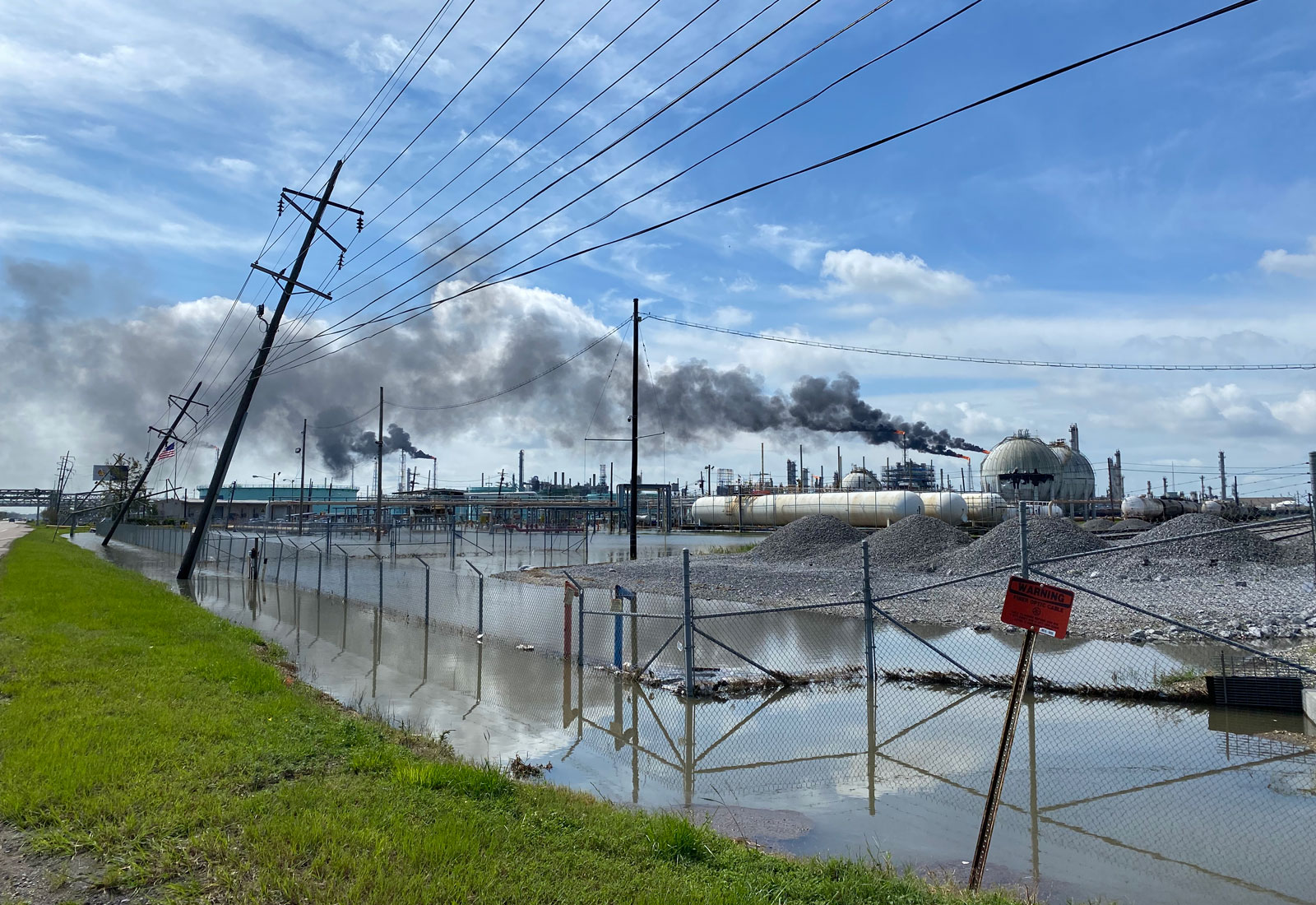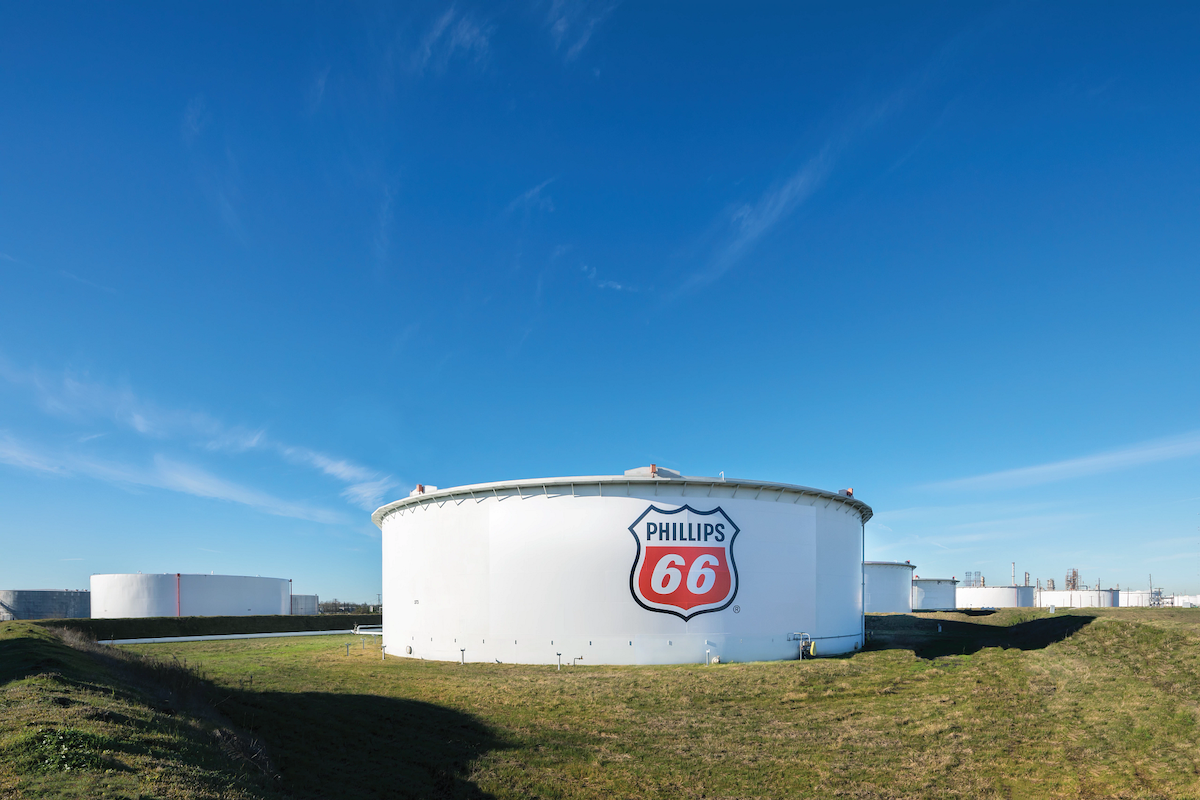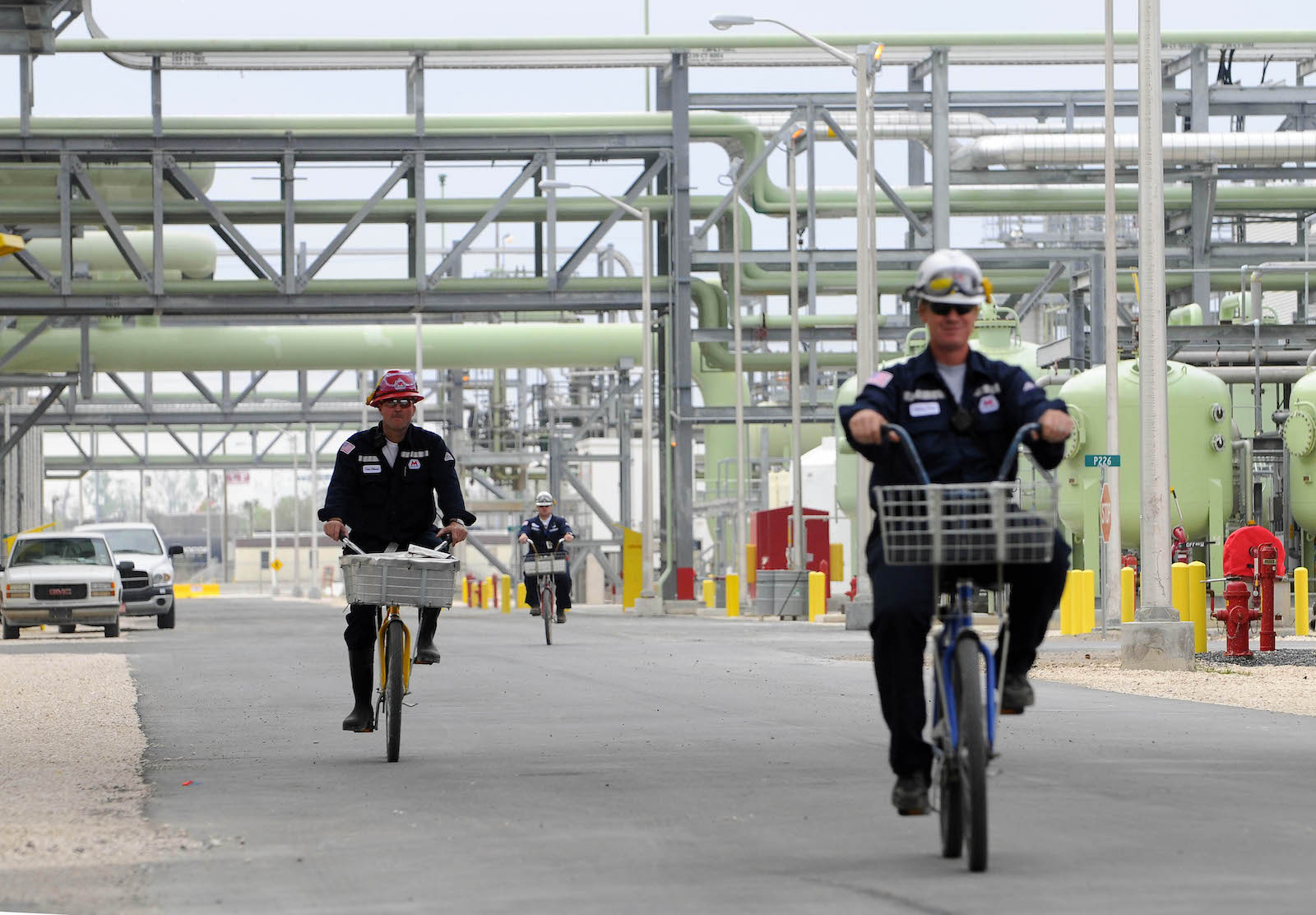David Dismukes studies the energy industry for a living. As the executive director of the Center for Energy Studies at Louisiana State University, he has spent the last 30 years pinpointing the industry’s challenges and theorizing around its rapidly changing future.
This is what he wants you to know: The energy transition from fossil fuels to solar and wind sources is real. “It’s happening and it’s gonna continue to happen.”
“At this point, It doesn’t matter if you’re right, wrong, for, or against,” said Dismukes. “People and industries are making, not just hundreds of millions, but billion-dollar decisions based on the belief that this transition is here.”
It’s creating – and taking away – jobs, swaying the economy, and transforming how we commute. The transition is also killing refineries, to the sounds of praise from environmental groups and uncertainty from the thousands of oil industry workers.
In January 2020, a few months before the first coronavirus pandemic shutdown, the American oil refining industry reached its highest capacity peak in history. It didn’t last long. Within months, six refineries, including the Philadelphia Energy Solutions refinery in Philadelphia – the 13th largest in the country – shut off oil production. By December, U.S. oil consumption reached a 25-year low. In the next two years, Wood Mackenzie, an energy consulting group, forecasts that 20 refineries across the globe, including roughly a dozen in the U.S., will cease operations.
No other place in the country will feel this more than the Gulf Coast, where roughly 55 percent of the country’s oil production lies. As of January 1, 2021, there were 51 refineries located in the Gulf states of Texas, Louisiana, Alabama, Mississippi, and Florida, compared to 113 in 1982, according to the U.S. Energy Information Administration.
Many Louisianians already feel the energy transition’s scope, namely the more than 25,000 former oil production workers in the state who have lost their jobs since 2014. Since the state’s oil production peak in the early 1980s, at least 20 oil refineries have shuttered.
As of January 1, 2021, there were 14 facilities still operating. Since then, two more facilities, owned by Shell and Phillips 66 respectively, have closed their doors – in part because of a sweeping convergence of COVID-19, severe weather events, and waning demand for oil. To the tune of at least 900 layoffs, the Phillips 66 refinery – the 25th largest oil-producing refinery in America – located in Plaquemines Parish, Louisiana, announced its closure in early November after experiencing $1.3 billion worth of damage from Hurricane Ida.

For energy experts and environmental justice advocates, Hurricane Ida offered just another example of the state’s unpreparedness for what lies ahead in the oil and gas industry, namely the growing risk of maintaining oil production in the face of climate change. Increasingly volatile environmental conditions, rising sea levels, and severe weather events – all of which the oil industry has had a role in causing – have made it more costly and dangerous for the industry to operate. Just in California, there are hundreds of pieces of fossil fuel infrastructure expected to flood in the coming decades due to sea-level rise.
“Even if fossil fuels weren’t killing the planet, Louisiana’s oil industry is showing us it’s time to move,” Anne Rolfes, director of the Louisiana Bucket Brigade, a Louisiana-based environmental justice organization, told Grist. “The infrastructure itself can’t be maintained and is both vulnerable to climate change and exacerbating it, which makes our storms worse.”
In the South, in addition to permanently closing one refinery, Hurricane Ida led to at least eight other refineries temporarily shutting down. Under emergency protocols, refineries in the state dumped pollution into the air nonstop for at least 72 hours as 96 percent of the region’s oil production was shut-in, according to estimates by the U.S. Department of Interior’s Bureau of Safety and Environmental Enforcement.

Louisiana’s seemingly forced – and unprepared – transition from the oil and gas industry offers a blueprint – more like a ‘what not to do’ list – for the rest of the country, advocates like Dismukes argue. For one, Dismukes said, the state has let the industry dictate the transition.
“The transition has become very problematic and challenging for Louisiana,” Dismukes said. “We’ve seen these corporations pencil these closures out 15 ways to Sunday to figure out a way to make it economical just for themselves.”
This leaves residents, workers, and communities in passive mitigation mode rather than allowing them to proactively consider employment and aspects of environmental remediation. This allows thousands of jobs to practically vanish into thin air while cutting millions in tax revenue to local governments. It also means abandoned fossil fuel infrastructure will be more likely to sit idle and unremediated, leaving neighboring communities susceptible to elevated levels of soil and water contamination in the face of severe weather events.
In Plaquemines Parish, the closing of the Phillips 66 plant has already influenced recent budget cuts, including the cutting of ambulance services in the area. “It’s also going to have a trickle-down effect. it will affect us on the government side, our housing market, and our grocery stores,” Plaquemines Parish President Kirk Lepine told a local FOX news station. The refinery accounted for roughly 15 percent of the parish’s tax revenue.
To prevent these economic and social disasters from plaguing communities steeped in fossil fuel production, advocates contend, models of a “just” rather than a forced transition must take place. The concept of a U.S.-based just transition emerged from the intersecting labor and environmental movements of the 1970s. It relies on the idea of employing a “regenerative” economy rather than an extractive one. With that idea in mind, it calls for the end of fossil fuel extraction – which helps to fuel the global economy – and investment into small-scale local production, food systems, and clean energy.
So far, Louisiana has failed to implore this framework. While the state has sustained a forced transition with the closing of many major petrochemical facilities, state leaders have decided to double down on extractive energy sources. “If you look at our state’s plans for industry and jobs in the coming years, it’s still all about petrochemicals, carbon capture, and fossil fuels,” said Rolfes. Earlier this month, Louisiana Governor John Bel Edwards announced a $10 billion partnership with Venture Global LNG, a fossil fuel-based energy company, to develop a liquified natural gas, or LNG, plant. The democratic governor heralded the new fossil fuel plant as being aligned with the state’s net-zero by 2050 goal. In comparison, earlier this year the state of New York blocked two similar plants for being inconsistent with the state’s greenhouse gas emissions targets.

The transition from fossil fuel production may look different for many Southern states, but some concepts have to be utilized by them all, advocates say. Local, state, and federal governments must be proactive in facilitating the transition and industry has to be on board. “The scientists are not just saying clearly – but waving their arms frantically – that the time to begin to move seriously to winding down fossil fuel development is now,” Drew Caputo, vice president of litigation at the environmental law firm Earthjustice, told Grist. “That it will be more effective and far cheaper to make those changes now than later.”
If not, a weakening demand coupled with the reality that severe weather events will continue to pummel the country’s coasts, where a vast amount of the country’s oil production lays, will threaten the environment and public health of nearby communities. Unprepared regions may also experience exacerbated levels of unemployment and poverty without clear transition plans and the creation of clean energy jobs.
“We know that our current energy industry is not economically, socially, or environmentally sustainable,” Rolfes said. “With two closings in a year, it is really significant and it shows the urgency to invest in cleaning up communities and for our state to get on the renewables train for so many reasons, including the jobs.”
In the immediate future, environmental organizations, local, state, and federal governments could help facilitate a more equitable and environmentally-friendly transition by investing in clean energy job programs. “If you want Big Oil to get up and go and not come back, you have to make these moves in concert,” Dismukes said. The transition must focus equally on building and maintaining new energy infrastructure and cleaning up pollution and contamination from decades of fossil fuel production, much like President Joe Biden’s proposed Civilian Climate Corp and the programs outlined in the Bipartisan Infrastructure Law.
Many fossil fuel workers already have the experience needed for the clean energy transition, especially skills necessary for offshore wind production. In a 2020 study conducted in the United Kingdom, 53 percent of oil and gas workers expressed interest in joining the offshore wind sector. And as the job market climbs out of its pandemic lows, there is more than enough labor to train workers in environmental remediation. President Joe Biden’s head of the Environmental Protection Agency, Michael Regan, agrees; Last month, he traveled throughout the state promising rigorous environmental clean-ups in many affected communities.
“The whole nation needs to be watching what’s happening here,” Rolfes explained. “It’s only going to lead to tragic job loss and continued contamination if our elected officials continue to ignore reality. It doesn’t have to be this way.”
Correction: This story originally misstated the last name of Louisiana Bucket Brigade director Anne Rolfes.



